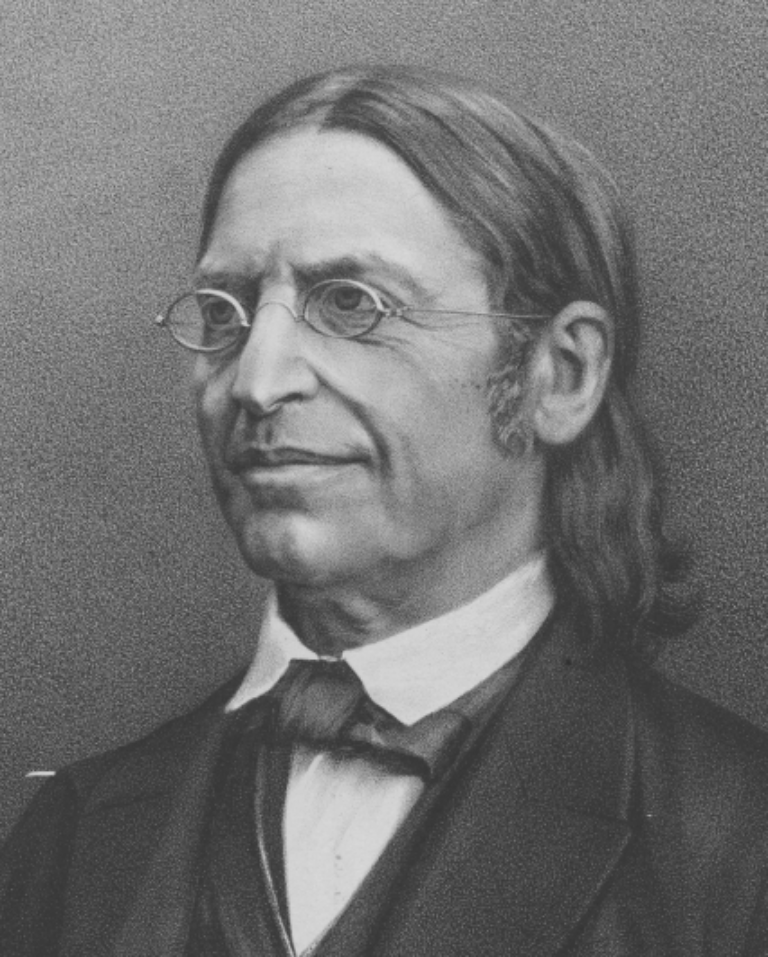Born in 1810 into an Orthodox family in Frankfurt am Main, he developed a keen interest in history and religious texts at a young age, which led him to question the divine authority of the Bible.
At the age of 17, Geiger began to intensively study the Mishnah, a collection of Jewish laws and traditions. His studies led to his first writings, in which he dealt with the juridical style of the Mishnah and compiled a dictionary of Mishnaic Hebrew. Despite his family’s concerns, he enrolled at the University of Heidelberg and immersed himself in philology, Syriac, Hebrew and the classics. The antisemitism of some of his professors repelled him, but he found a mentor in Georg Freytag, under whose guidance he wrote an award-winning work on the influence of rabbinic literature on the Qur’an, for which he was awarded a doctorate.
As a rabbi in Wiesbaden, Geiger initiated the first synagogue reforms and founded scholarly journals that became the voice of Jewish scholarship. However, his efforts to renew Judaism also met resistance, especially during his application for a rabbinical position in Breslau (now Wrocław, Poland). Nevertheless, he prevailed and eventually became the head of the local community.
Besides his dissertation, a highlight of Geiger’s extensive body of work is the book Urschrift und Übersetzungen der Bibel (Original Text and Translations of the Bible), in which he highlights the liberal and democratizing tradition of the Pharisees. He believed that throughout history, outside pressures had increasingly forced real Judaism into a rigid form that, in his view, needed to be overcome.
The Reform movement and Geiger’s legacy
As a member of the Reform movement, Geiger represented a moderate line. He advocated for the use of the German language in services and moderated some Orthodox practices while maintaining others, such as the traditional circumcision of boys. Geiger was a thinker who saw reforms not as a rupture, but as a return to an authentic Judaism grounded in ethics.
His dedication as a rabbi in Frankfurt and later in Berlin, as well as his involving in founding the Higher Institute for Jewish Studies in Berlin, testify to his tireless efforts to interpret and practice Judaism in a way appropriate to the times. When Abraham Geiger died in 1874, he left a legacy that continues to influence Jewish thought and religious practice to this day. Abraham Geiger’s approaches to theology remain significant today, as they offer a good example of how faith and reason can be in a productive dialogue.
“Draw from the past, live in the present, work for the future.”
